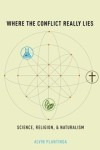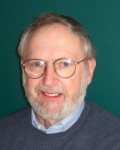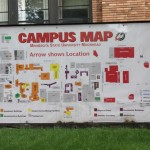Most people think there is a basic antagonism between faith and science that has to be overcome if one is to be both a theist and a scientific practitioner. Alvin Plantinga [1] says, au contraire. It is in fact the naturalist who has the real problem. In Where the Conflict Really Lies: Science, Religion, and Naturalism, Plantinga carefully works this out over 352 pages. He begins with the areas often thought to be in contradiction, in particular the questions of evolution and miracles, and demonstrates that in … [Read more...] about Book Review: Where the Conflict Really Lies
naturalism
What role does Christianity play in our scholarship?
I've been writing about George Marsden's talk to InterVarsity Graduate and Faculty Ministries at our recent staff conference. Over the last two weeks, I've written about Dr. Marsden's belief that metaphysical naturalism is losing its hold on the academy and his endorsement for methodological naturalism as an appropriate stance for Christian faculty. Last week, I shared the question that I asked him: Since we agree that methodological naturalism is a good way of doing academic work, but that privatization is a bad way … [Read more...] about What role does Christianity play in our scholarship?
How can Christian scholars avoid privatizing their faith?
Last week, I wrote about George Marsden's address to InterVarsity Graduate and Faculty Ministries staff, "The Soul of the American University Revisited." Dr. Marsden suggested that worldview naturalism —also called ideological or metaphysical naturalism —was losing its hold on the academy. In contrast, methodological naturalism remained strong and, indeed, was an appropriate stance for Christians in academia. It's this form of naturalism that I want to focus on today. Here's how J. P. Moreland and William Lane Craig … [Read more...] about How can Christian scholars avoid privatizing their faith?
Is Naturalism Losing Steam?
Last week, Tom and I attended the national staff meetings for InterVarsity Graduate and Faculty Ministries, which continued the theme of Campuses Renewed from our national staff conference in January. Our speakers could not have been better: historian George Marsden, the Francis A. McAnaney Professor of History at the University of Notre Dame, who wrote the seminal book The Outrageous Idea of Christian Scholarship (see our online book discussion for more details), and University of Cincinnati Provost Santa Ono, who … [Read more...] about Is Naturalism Losing Steam?
You never hear apologists attacking Melville…
Does your choice of undergraduate major affect your religious faith? Inside Higher Ed recently reported on a study by Miles S. Kimball, Colter M. Mitchell, Arland D. Thornton and Linda C. Young-Demarco, all of U. Michigan, that asked that very question. Using data from the long-running Monitoring the Future study, Kimball et al. tracked the religiosity of college students (based on how frequently they attended religious services and how important they viewed religion in their lives, along with some secondary indicators) … [Read more...] about You never hear apologists attacking Melville…


